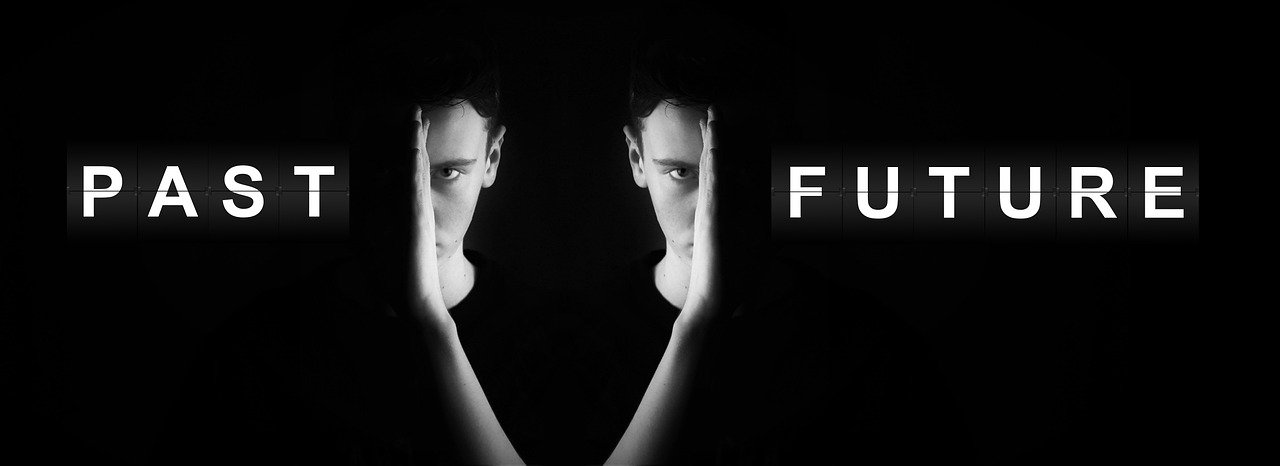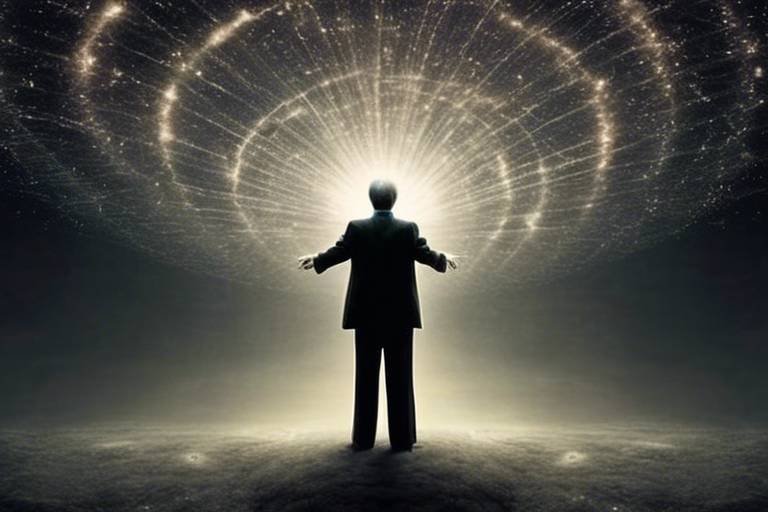Ontology - Bridging the Gap Between Thought and Reality
Ontology is a fascinating field that delves deep into the very essence of existence. Imagine standing at the crossroads of thought and reality, where every idea you have about the world is put to the test. It’s like being a detective, piecing together clues about what truly exists around us. In this article, we will explore the intricate web of ontology, examining its significance in both philosophy and science. We will uncover how ontology acts as a bridge, helping us navigate the complex relationship between our thoughts and the external world. So, buckle up as we embark on this intellectual journey that promises to challenge your perceptions and ignite your curiosity!
At its core, ontology is the branch of philosophy that grapples with the nature of being, existence, and reality. Think of it as the ultimate inquiry into what it means to exist. It seeks to answer essential questions such as: What entities are real? How do we categorize these entities? And, what is the nature of their existence? Ontology encourages us to peel back the layers of our thoughts and beliefs, prompting us to consider the underlying structures that define our reality. By exploring these questions, ontology not only enriches our understanding of the world but also shapes our interactions with it.
The roots of ontology run deep, tracing back to ancient philosophy. The evolution of ontological thought has been shaped by numerous key figures and milestones throughout history. From the musings of early philosophers to modern debates, ontology has continuously adapted, reflecting the changing landscape of human thought. Here are some pivotal moments that have defined the field:
- Plato's Concept of Forms: Plato introduced the idea of Forms, which are abstract representations of the properties of objects. This groundbreaking concept laid the groundwork for understanding the nature of reality and existence.
- Aristotle's Substance Theory: Expanding on Plato's ideas, Aristotle argued that substances are the fundamental entities of reality. His classification of beings has had a lasting impact on philosophical and scientific discourse.
Plato's theory of Forms is a cornerstone of ontological thought. He proposed that beyond our physical world lies a realm of perfect, abstract Forms. For instance, when we think of beauty, we might picture a beautiful sunset or a stunning piece of art, but according to Plato, these are mere shadows of the true Form of Beauty. This idea revolutionized how we perceive reality, suggesting that what we see is just a reflection of deeper truths. Plato's influence continues to resonate in modern ontology, prompting us to question the nature of the things we encounter daily.
On the other hand, Aristotle took a different approach. He emphasized the importance of substances—individual entities that exist independently. For Aristotle, substances are the building blocks of reality; they are what truly exists. His classification system, which includes categories like living beings, inanimate objects, and abstract entities, has shaped philosophical discourse for centuries. By focusing on substances, Aristotle provided a framework that continues to inform our understanding of existence today.
Fast forward to contemporary philosophy, and we find a rich tapestry of ontological theories that challenge traditional views. Each theory offers a unique lens through which to examine existence and reality. Let's explore a couple of the most influential modern theories:
Existentialism is a philosophy centered on individual existence and freedom. It emphasizes the subjective experience of reality, arguing that each person must find their own meaning in life. This approach challenges the traditional ontological views that often seek universal truths. Instead, existentialists encourage us to embrace our unique perspectives, suggesting that reality is shaped by our personal experiences and choices.
The debate between realism and idealism is another fascinating aspect of modern ontology. Realism posits that reality exists independently of our perceptions, while idealism argues that our thoughts shape our reality. This philosophical tug-of-war raises crucial questions about the nature of existence: Does the world exist outside of our minds, or is it merely a construct of our thoughts? Understanding these two positions can profoundly impact how we interpret our experiences and the world around us.
Ontology isn't just an abstract concept; it has practical applications across various fields, including computer science, information systems, and artificial intelligence. In these domains, ontological frameworks enhance our understanding and organization of knowledge. For example, in artificial intelligence, ontologies help machines understand and interpret human language, enabling more effective communication between humans and technology. By providing a structured way to categorize information, ontology plays a crucial role in advancing our technological capabilities.
Despite its significance, ontology faces several challenges. One major issue is the problem of universals: Are abstract entities like numbers and properties real, or are they merely names we use to describe the world? Additionally, the nature of abstract entities poses questions about their existence and how they relate to the physical world. These challenges invite ongoing philosophical inquiry, pushing us to refine our understanding of existence.
As our understanding of reality continues to evolve, so too does the field of ontology. The future of ontological studies promises to be dynamic, with emerging trends that reflect our changing perceptions of existence. As we grapple with advancements in technology and science, ontological questions will remain relevant, guiding us in our quest for knowledge and understanding. The exploration of ontology is far from over; it is a journey that invites us to continually question and redefine what it means to exist.
- What is the main focus of ontology? Ontology primarily studies the nature of being, existence, and reality, exploring what entities exist and how they can be categorized.
- How does ontology differ from other branches of philosophy? While ontology focuses specifically on existence, other branches of philosophy may address ethics, knowledge, or aesthetics, providing a broader context for understanding human experience.
- What are some practical applications of ontology? Ontology has applications in fields such as computer science, artificial intelligence, and information systems, helping to organize and interpret knowledge effectively.
- Why is the study of ontology important? Understanding ontology allows us to question our perceptions of reality, helping us navigate the complexities of existence and enhancing our grasp of the world around us.

What is Ontology?
Ontology is a fascinating branch of philosophy that delves into the very essence of being, existence, and reality. Imagine it as a grand exploration of the universe, where the primary goal is to uncover what truly exists and how we can categorize these entities. At its core, ontology seeks to answer profound questions such as: What is real?, What does it mean to exist?, and How do our thoughts relate to the external world? This inquiry not only shapes philosophical discourse but also influences various fields such as science, linguistics, and artificial intelligence.
To put it simply, ontology is like a map of reality. Just as a map helps you navigate through a city by categorizing streets, buildings, and landmarks, ontology categorizes the different aspects of existence. It helps us understand that there are different types of entities, such as physical objects, abstract concepts, and even relationships. For instance, when we think of a tree, we recognize it as a physical entity. However, we might also think of concepts like “growth” or “shelter,” which are abstract but equally important in understanding the tree's role in our reality.
In ontology, we often encounter two main categories of entities: concrete and abstract. Concrete entities are those we can perceive with our senses, like a car or a mountain. On the other hand, abstract entities include things like numbers, emotions, and concepts, which we cannot touch or see but can certainly feel and understand. This distinction is crucial because it influences how we interact with the world around us and shapes our understanding of existence.
Moreover, ontology is not just an academic exercise; it has practical implications in various domains. For instance, in computer science, ontological frameworks are utilized to organize data and enhance information retrieval. By defining categories and relationships between concepts, we can create systems that better understand and process information, much like how our brains categorize and store knowledge.
In summary, ontology is a vital field that bridges the gap between our thoughts and the external reality. It helps us navigate the complexities of existence, providing a structured way to understand the myriad entities that populate our world and the relationships between them. Whether we are philosophers pondering the nature of being or scientists exploring the universe, ontology serves as a foundational tool for making sense of our reality.

Historical Background
The development of ontology has deep roots in ancient philosophy, tracing back to the very foundations of Western thought. It’s like a tree, where each branch represents a different thinker or idea that has contributed to our understanding of existence. The journey begins with the ancient Greeks, whose philosophical inquiries laid the groundwork for ontological discourse.
One of the earliest figures to delve into the nature of being was Parmenides, who posited that change is an illusion and that reality is a single, unchanging entity. His ideas sparked debates that would echo through the ages. Following him, Heraclitus countered with the notion that change is the fundamental essence of the universe, famously stating, "You cannot step into the same river twice." This dichotomy between being and becoming set the stage for future ontological explorations.
However, it was Plato who truly revolutionized ontological thought with his theory of Forms. He proposed that beyond our physical world lies a realm of ideal Forms—perfect and immutable concepts that represent the true essence of things. For instance, while we see many different chairs in the world, the Form of "Chairness" exists as an abstract ideal. This notion not only influenced philosophy but also laid the groundwork for metaphysics, creating a framework for understanding how our thoughts relate to the external world.
Building on Plato's ideas, Aristotle introduced his own perspective through the concept of substance. He argued that substances are the fundamental entities of reality, comprising both matter and form. In Aristotle's view, everything that exists can be categorized based on its essence and attributes. His detailed classifications of beings—such as living versus non-living—have had a lasting impact on both philosophical and scientific discourse. Aristotle’s ontology emphasizes the importance of empirical observation, setting a precedent for future inquiries into the nature of reality.
| Philosopher | Key Contribution | Impact on Ontology |
|---|---|---|
| Parmenides | Reality as unchanging | Introduced the concept of being |
| Heraclitus | Change as fundamental | Challenged static notions of existence |
| Plato | Theory of Forms | Established the distinction between the ideal and the physical |
| Aristotle | Substance Theory | Provided a systematic classification of beings |
As we moved into the medieval period, thinkers like Thomas Aquinas sought to reconcile Aristotelian ontology with religious doctrine. He introduced the idea of being as a reflection of divine creation, suggesting that our understanding of existence is intertwined with a higher power. This blend of faith and reason further enriched ontological discussions, leading to a more nuanced understanding of reality.
In the modern era, the Enlightenment brought about a shift in ontological thought, with philosophers like Immanuel Kant questioning the limits of human perception and understanding. Kant argued that while we can never know the "thing-in-itself," our experiences shape our understanding of reality. This perspective opened new avenues for ontological inquiry, emphasizing the subjective nature of existence.
In summary, the historical background of ontology is like a rich tapestry woven from the thoughts and ideas of various philosophers. Each thread contributes to a deeper understanding of existence, reality, and our place within it. As we explore the evolution of ontological thought, it becomes clear that this field is not just an abstract pursuit; it is a vital part of our quest to comprehend the world around us.

Plato and Forms
Plato, one of the most influential philosophers in Western history, introduced the concept of Forms—also known as Ideas—in his quest to understand the nature of reality. Imagine walking through a gallery filled with beautiful paintings. Each painting represents a different object, yet they all share a common essence, a perfect idea of what that object should be. This is akin to Plato’s theory of Forms, where the tangible objects we encounter in our world are merely shadows or imitations of these ideal Forms that exist in a non-physical realm.
For Plato, these Forms are not just abstract concepts; they are the true reality. He believed that everything we see around us is a mere reflection of these perfect Forms. For instance, consider the concept of a circle. While we can draw many circles, none of them can perfectly embody the essence of "circularity" as a Form. This distinction is crucial because it suggests that our sensory experiences are limited and often misleading. Plato argued that to grasp the truth, one must seek knowledge beyond the physical world, aiming for the understanding of these eternal and unchanging Forms.
Plato's allegory of the cave is a powerful illustration of this idea. In the allegory, prisoners are chained inside a dark cave, facing a wall, where they can only see shadows cast by objects behind them. These shadows represent the physical world, while the objects themselves symbolize the Forms. The journey of the philosopher is akin to a prisoner escaping the cave—moving from the darkness of ignorance to the light of knowledge and understanding. This metaphor emphasizes the importance of education and philosophical inquiry in achieving enlightenment.
Furthermore, Plato categorized Forms into various types, such as:
- Abstract Forms: These include concepts like beauty, justice, and equality.
- Concrete Forms: These refer to the ideal versions of physical objects, such as a perfect tree or a flawless human.
Understanding Plato's Forms is essential for grasping the roots of ontology. His ideas laid the groundwork for subsequent philosophical thought, influencing not only his contemporaries but also future generations. The quest for understanding the essence of things continues to resonate in modern philosophy, as scholars grapple with the implications of Plato’s insights. In essence, Plato’s exploration of Forms invites us to ponder deeper questions about what it means to exist and how we can truly know the world around us.

Aristotle's Substance Theory
Aristotle's substance theory represents a pivotal moment in the history of philosophy, as it laid the groundwork for understanding reality through the lens of substance. Unlike his mentor Plato, who posited the existence of abstract Forms, Aristotle emphasized the importance of tangible entities that make up the world around us. For Aristotle, substances are the fundamental building blocks of reality; they are what we perceive as individual things. This perspective shifts the focus from mere ideas to actual things that exist in the world.
At the heart of Aristotle's theory is the distinction between substance and accident. A substance is something that exists independently, while accidents are properties or qualities that can change without altering the essence of the substance itself. For instance, consider a tree: its substance is the tree itself, while its height, color, and the number of leaves are accidents. This distinction is crucial because it helps us understand how entities persist through changes in their properties.
Aristotle categorized substances into two main types: primary substances and secondary substances. Primary substances are individual entities, such as a specific dog or a particular tree. Secondary substances, on the other hand, refer to the categories or species that primary substances belong to, like the species 'dog' or 'tree'. This classification not only provides a framework for understanding the world but also enables us to discuss and analyze entities in a structured manner.
Furthermore, Aristotle introduced the concept of hylomorphism, which posits that every substance is a compound of matter and form. Matter refers to the physical substance of an entity, while form is the essence or the defining characteristics that make it what it is. To illustrate, think of a statue: the marble is the matter, and the shape or design carved into it is the form. This duality allows us to explore the nature of being in a more profound way, as it acknowledges both the physical and the conceptual aspects of existence.
Aristotle's substance theory has had a lasting impact on various fields, including metaphysics, biology, and even modern science. It challenges us to consider not just what things are made of, but what they fundamentally are in terms of their essence. As we delve deeper into the implications of this theory, we realize that understanding substances is crucial for grasping the complexities of the world we inhabit.
- What is the main difference between Aristotle's and Plato's theories? Aristotle focuses on concrete substances, while Plato emphasizes abstract Forms.
- How does substance theory apply to modern science? It provides a framework for categorizing and understanding different entities in scientific inquiry.
- What is hylomorphism? It is Aristotle's idea that substances are composed of both matter and form.

Modern Ontological Theories
In the vast landscape of contemporary philosophy, provide a rich tapestry of ideas, each thread representing a unique perspective on existence and reality. These theories have emerged as a response to the complexities of the modern world, challenging traditional notions and inviting us to reconsider what we truly understand about being. One of the most significant developments in this arena is the rise of existentialism, which pivots away from objective realities to focus on the subjective experiences of individuals. Existentialists argue that reality is not a fixed entity but rather a dynamic interplay of personal choices and meanings, emphasizing that each person must navigate their own path through the chaotic fabric of existence.
In stark contrast to existentialism, we find the debate between realism and idealism. This philosophical tug-of-war raises profound questions about the nature of reality itself. Realists assert that an objective reality exists independent of our perceptions, suggesting that the world is a concrete entity that we can study and understand. Idealists, on the other hand, argue that reality is fundamentally shaped by our thoughts and perceptions. They posit that our understanding of the world is inherently subjective, molded by our experiences and consciousness. This dichotomy forces us to confront questions like: Is there a reality that exists outside of our minds? or Are we merely creating our own realities through perception?
Moreover, phenomenology has emerged as another influential modern ontological approach. This theory focuses on the structures of experience and consciousness, aiming to uncover the essence of phenomena as they appear to us. Phenomenologists argue that understanding existence requires us to delve into our lived experiences, examining how we perceive and interact with the world around us. This introspective journey can lead to profound insights about the nature of reality, bridging the gap between subjective experience and objective existence.
To illustrate these modern theories, consider the following table that highlights key characteristics and differences:
| Theory | Focus | Key Question |
|---|---|---|
| Existentialism | Individual experience and freedom | What does it mean to exist? |
| Realism | Objective reality | Does reality exist independently of our perceptions? |
| Idealism | Subjective perception | Is reality shaped by our thoughts? |
| Phenomenology | Structures of experience | How do we experience existence? |
As we navigate through these modern ontological theories, it becomes evident that each perspective offers valuable insights into the nature of reality. They challenge us to reflect on our own beliefs and assumptions, prompting a deeper exploration of existence itself. In a world where the lines between objective and subjective are increasingly blurred, these theories serve as crucial frameworks for understanding the complexities of being.
- What is the main focus of existentialism?
Existentialism emphasizes individual existence, freedom, and personal meaning, suggesting that reality is shaped by our subjective experiences. - How do realism and idealism differ?
Realism posits that an objective reality exists independently of our perceptions, while idealism argues that reality is fundamentally influenced by our thoughts and consciousness. - What role does phenomenology play in modern ontology?
Phemomenology focuses on the structures of experience and consciousness, seeking to uncover the essence of how we perceive and interact with the world.

Existentialism
Existentialism is a philosophical movement that dives deep into the essence of individual existence, focusing on the unique experiences and choices that define our lives. Imagine standing at a fork in the road, where every path represents a different choice that shapes your future. This metaphor captures the essence of existentialism, which emphasizes that our choices determine who we are and how we perceive reality. It’s not just about existing; it’s about making sense of that existence in a world that often feels chaotic and indifferent.
At the heart of existentialism is the belief that individuals are responsible for creating their own meaning and purpose in life. Unlike traditional philosophies that may argue for a predetermined essence or purpose, existentialists assert that we are born as blank slates and must navigate through life to carve out our own identities. Think of it as being an artist with a blank canvas. Every decision, every action, and every interaction adds color and texture to our life’s masterpiece.
Existentialists like Jean-Paul Sartre and Simone de Beauvoir challenged the status quo by asserting that existence precedes essence. This means that rather than being born with a specific purpose, individuals must create their own essence through actions and choices. Sartre famously stated, “We are condemned to be free,” highlighting the weight of freedom and the anxiety it can bring. This freedom can be both exhilarating and terrifying, as it places the burden of authenticity squarely on our shoulders.
In existentialism, the idea of authenticity is crucial. It encourages individuals to live genuinely according to their own values and beliefs, rather than conforming to societal expectations. This pursuit of authenticity often leads to a profound sense of liberation, but it can also provoke feelings of isolation and despair. After all, when you step away from the crowd, you may find yourself standing alone, grappling with the weight of your choices.
Existentialism also delves into themes of absurdity and the human condition. Life can often feel absurd, filled with randomness and unpredictability. Think of it like a game where the rules keep changing, and the outcome is never guaranteed. This perspective challenges us to confront the inherent meaninglessness of life and encourages us to find our own significance amidst the chaos. The existentialist response to this absurdity is not to succumb to despair but to embrace it and create our own meaning.
In summary, existentialism is a rich and complex philosophy that invites us to reflect on our existence, our choices, and the essence of what it means to be human. It teaches us that while life may present challenges and uncertainties, we hold the power to shape our own destinies. The journey of self-discovery and the quest for authenticity can be daunting, but it is also incredibly rewarding. After all, the canvas of life is ours to paint.
- What is the main idea of existentialism? Existentialism emphasizes individual freedom, choice, and the search for meaning in an often chaotic and indifferent world.
- Who are some key figures in existentialist philosophy? Notable existentialists include Jean-Paul Sartre, Simone de Beauvoir, and Albert Camus.
- How does existentialism differ from other philosophical movements? Unlike philosophies that propose a predetermined essence or purpose, existentialism posits that individuals must create their own meaning through choices and actions.
- What role does authenticity play in existentialism? Authenticity is central to existentialism, urging individuals to live according to their own values rather than societal expectations.

Realism vs. Idealism
When diving into the philosophical waters of realism and idealism, we find ourselves at a crossroads that has puzzled thinkers for centuries. At its core, realism posits that reality exists independently of our perceptions. In other words, the world is out there, waiting to be discovered, regardless of whether anyone is around to observe it. Think of it like a tree falling in a forest: it makes a sound whether or not someone hears it. On the flip side, idealism suggests that reality is fundamentally shaped by our thoughts and perceptions. This perspective argues that the mind plays a crucial role in constructing the world we experience. Imagine a painter who creates a landscape; the painting only exists because of the artist's vision.
These two philosophical stances raise intriguing questions about our understanding of existence. For instance, if we lean towards realism, we might ask: "What is the nature of the world beyond our senses?" Conversely, from an idealist viewpoint, we could ponder: "How do our thoughts shape the reality we experience?" Both perspectives offer valuable insights, yet they also lead to complex discussions about the nature of truth and knowledge.
To further clarify the distinctions between realism and idealism, let's break down some key points:
| Aspect | Realism | Idealism |
|---|---|---|
| Nature of Reality | Exists independently of perception | Constructed by perception and thought |
| Key Proponents | Aristotle, Thomas Reid | Plato, George Berkeley |
| Epistemology | Knowledge is a reflection of reality | Knowledge is shaped by our experiences |
As we explore these contrasting views, it's essential to consider their implications for our understanding of reality. Realism provides a stable foundation for scientific inquiry, asserting that our observations can lead us to uncover the truths of the universe. Idealism, however, invites us to reflect on the subjective nature of our experiences, encouraging a deeper connection to our inner thoughts and feelings.
In practice, many contemporary philosophers and scientists find themselves navigating a middle ground, recognizing that while there is an external reality, our perceptions inevitably color our understanding of it. This interplay between realism and idealism can be likened to a dance, where both partners must engage to create a harmonious understanding of existence.
Ultimately, the debate between realism and idealism continues to shape philosophical discourse and invites us to question our own beliefs about reality. Are we mere observers in a world that exists independently, or are we active participants in creating the reality we perceive? This ongoing dialogue not only enriches our philosophical landscape but also influences various fields, including psychology, cognitive science, and even artificial intelligence.
- What is realism? Realism is the philosophical stance that asserts the existence of a reality independent of our perceptions.
- What is idealism? Idealism is the view that reality is fundamentally shaped by our thoughts and perceptions.
- How do realism and idealism differ? Realism emphasizes an objective reality, while idealism focuses on the subjective experience of reality.
- Can one be both a realist and an idealist? Yes, many contemporary thinkers adopt a mixed approach, recognizing elements of both perspectives.

Applications of Ontology
Ontology isn't just a philosophical concept; it has real-world applications that bridge the gap between abstract thought and practical implementation. In today's digital age, the significance of ontology can be seen across various fields, enhancing our understanding and organization of knowledge. For example, in computer science, ontology plays a pivotal role in the development of semantic web technologies. By providing a structured framework for data, ontologies help machines understand the meaning of information, allowing for more intelligent data retrieval and processing.
In the realm of artificial intelligence, ontological frameworks are essential for knowledge representation. They enable AI systems to reason about the world, facilitating tasks such as natural language processing and machine learning. Imagine teaching a computer not just to process data but to understand the context and relationships between different pieces of information. This is where ontology shines, making it a cornerstone of intelligent systems.
Moreover, ontology finds its application in information systems, where it aids in data integration and interoperability. Organizations often grapple with disparate data sources, and ontologies provide a common vocabulary that enhances communication between systems. This ensures that data from different sources can be combined and utilized effectively, streamlining processes and improving decision-making.
Another fascinating application is in the field of biomedical research. Ontologies like the Gene Ontology (GO) and the Foundational Model of Anatomy (FMA) help researchers categorize and annotate biological information, making it easier to share and analyze data across different studies. This collaborative approach accelerates discoveries and enhances our understanding of complex biological systems.
To summarize, the applications of ontology are vast and varied. Here’s a quick overview:
- Computer Science: Enhances semantic web technologies for better data understanding.
- Artificial Intelligence: Facilitates knowledge representation and reasoning.
- Information Systems: Aids in data integration and interoperability.
- Biomedical Research: Supports data categorization and annotation for enhanced collaboration.
As we continue to navigate an increasingly complex world, the relevance of ontology in organizing and understanding knowledge cannot be overstated. Its applications not only improve technology but also foster collaboration across disciplines, ultimately leading to greater innovation and discovery.
What is ontology?
Ontology is the branch of philosophy that studies the nature of being, existence, and reality. It seeks to understand what entities exist and how they can be categorized.
How is ontology used in computer science?
In computer science, ontology provides a structured framework for data, enabling machines to understand and process information more intelligently.
Can ontology be applied in fields outside of philosophy?
Absolutely! Ontology has practical applications in computer science, artificial intelligence, information systems, and even biomedical research, among others.
What are some challenges in ontology?
Ontology faces challenges such as the problem of universals and the nature of abstract entities, which can complicate philosophical inquiry.

Challenges in Ontology
Ontology, while a fascinating and essential branch of philosophy, is not without its challenges. One of the most significant issues is the problem of universals. This age-old debate questions whether abstract concepts like "redness" or "beauty" exist independently of the objects that embody them. For instance, when we think about the color red, does that concept exist in some realm outside of the red objects we see, or is it merely a mental construct? This dilemma has perplexed philosophers for centuries and continues to spark intense discussions in modern philosophical circles.
Another challenge lies in the nature of abstract entities. What exactly constitutes an abstract object? Are numbers, for example, real entities that exist in a non-physical realm, or are they simply useful fictions we create to make sense of the world? This question leads to further inquiries about the ontology of mathematical objects, concepts, and even fictional characters. The implications of these debates are profound, influencing not only philosophy but also fields like mathematics and computer science.
Moreover, the advancement of science and technology has introduced new complexities into ontological discussions. As we explore realms such as quantum mechanics and artificial intelligence, traditional ontological frameworks are challenged. For instance, quantum physics raises questions about the nature of reality itself—does it exist in a definite state, or is it merely a probability until observed? Similarly, in the realm of AI, the question of whether a machine can possess "thought" or "consciousness" invites ontological scrutiny. These developments compel us to rethink our definitions and categories of existence.
Additionally, the diversity of ontological perspectives can lead to confusion and disagreement. Different philosophical traditions—such as analytic philosophy, continental philosophy, and Eastern philosophies—often have contrasting views on existence and reality. This plurality can create a fragmented understanding of ontology, making it difficult to reach consensus on fundamental issues. For instance, while some traditions may argue for a materialist view of existence, others advocate for a more idealistic or spiritual interpretation. Bridging these gaps remains a significant challenge for contemporary ontological inquiry.
In summary, the challenges in ontology are multifaceted and deeply intertwined with both philosophical and practical implications. The ongoing debates about universals, the nature of abstract entities, the impact of scientific advancements, and the diversity of perspectives all contribute to a rich but complex field of study. As we continue to explore these issues, ontology remains a critical area of philosophical inquiry, urging us to reflect on the very nature of existence itself.
- What is the problem of universals?
The problem of universals questions whether abstract concepts exist independently of the objects they represent. - How does science impact ontology?
Advances in science, especially in fields like quantum mechanics, challenge traditional notions of reality and existence. - Why is there disagreement in ontological perspectives?
Different philosophical traditions offer varying interpretations of existence, leading to confusion and debate.

The Future of Ontological Studies
As we stand on the brink of a new era in philosophical inquiry, the future of ontological studies is both exciting and complex. With advancements in technology and a deeper understanding of human consciousness, ontology is poised to evolve in ways we can only begin to imagine. The intersection of philosophy with fields such as artificial intelligence, quantum physics, and cognitive science is creating a fertile ground for ontological exploration. But what does this mean for our understanding of existence and reality?
One of the most intriguing developments is the increasing recognition of interdisciplinary approaches. Scholars are beginning to realize that the questions posed by ontology cannot be fully answered within the confines of traditional philosophy alone. Instead, they must engage with insights from other disciplines. For instance, how might quantum mechanics inform our understanding of existence? Or how can advancements in AI challenge our notions of consciousness and being? These questions are not just academic; they hold the potential to reshape our worldview.
Moreover, the rise of digital environments and virtual realities is pushing ontological boundaries. As we create and interact with digital entities—avatars, virtual companions, and even AI-driven personalities—we must consider their ontological status. Are these entities merely simulations, or do they possess a form of existence? This leads to fascinating discussions about the nature of reality itself, blurring the lines between the physical and the digital. The implications of such questions are profound, affecting not only philosophy but also ethics, law, and technology.
In addition to these technological influences, the future of ontological studies is likely to be shaped by a growing emphasis on diversity of thought. Traditional Western ontology has often been critiqued for its Eurocentric perspective. As more voices from different cultures and philosophical traditions enter the conversation, we can expect a richer tapestry of ideas. This inclusivity could lead to new ontological frameworks that challenge established norms and expand our understanding of existence.
Furthermore, the application of ontology in practical fields—such as data science and knowledge management—is becoming increasingly vital. Ontological frameworks help in organizing vast amounts of information, making it easier to retrieve and understand. As we move into an age defined by big data, the role of ontology in structuring knowledge will only grow. For instance, the development of ontologies in semantic web technologies allows for better data interoperability and enhanced search capabilities, which are crucial for navigating the digital landscape.
In conclusion, the future of ontological studies is a dynamic interplay of traditional philosophical inquiry and modern scientific advancements. By embracing interdisciplinary collaboration, addressing the challenges posed by digital realities, and fostering diverse perspectives, ontology can continue to illuminate the mysteries of existence. As we ponder these profound questions, one thing is clear: ontology is not just a relic of the past; it is a vibrant field that will shape our understanding of reality for generations to come.
- What is ontology? Ontology is the branch of philosophy that studies the nature of being, existence, and reality.
- Why is ontology important? Ontology helps us categorize and understand the entities that exist in the world, influencing various fields such as science, technology, and ethics.
- How does technology impact ontology? Advances in technology, especially in AI and virtual reality, challenge traditional notions of existence and require new ontological frameworks.
- What are some modern ontological theories? Existentialism, realism, and idealism are some of the prominent theories that explore different aspects of existence and reality.
Frequently Asked Questions
- What is ontology?
Ontology is the branch of philosophy that delves into the nature of being, existence, and reality. It aims to answer fundamental questions about what entities exist and how they can be categorized. Think of it as a framework for understanding everything that is out there in the universe!
- Why is ontology important?
Ontology is crucial because it helps us make sense of our world. By categorizing and understanding different entities, we can better grasp our thoughts and how they relate to reality. It's like having a map that guides us through the complex landscape of existence.
- Who were the key figures in the development of ontology?
Some of the most influential figures in ontology include Plato, who introduced the concept of Forms, and Aristotle, who proposed the idea of substances as fundamental entities. Their ideas have shaped philosophical discourse for centuries and continue to influence modern thought.
- What are modern ontological theories?
Modern ontology includes various theories such as existentialism, which emphasizes individual existence and personal meaning, and the debate between realism and idealism, which explores whether reality exists independently of our perceptions. Each theory offers a unique lens through which we can view existence.
- How is ontology applied in today's world?
Ontology has practical applications across fields like computer science, information systems, and artificial intelligence. It helps in organizing knowledge and improving how we interact with information, making it a vital tool in the digital age.
- What challenges does ontology face?
Ontology grapples with several challenges, including the problem of universals and the nature of abstract entities. These challenges raise important questions about how we understand existence and the categories we create to define it.
- What does the future hold for ontological studies?
As our understanding of reality evolves, so too does ontology. Future trends may include deeper explorations of consciousness, the nature of reality in a digital world, and how emerging technologies influence our perceptions of existence.



















